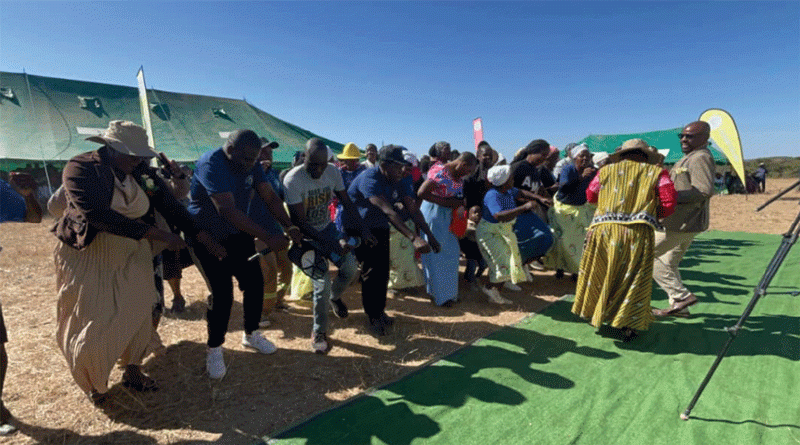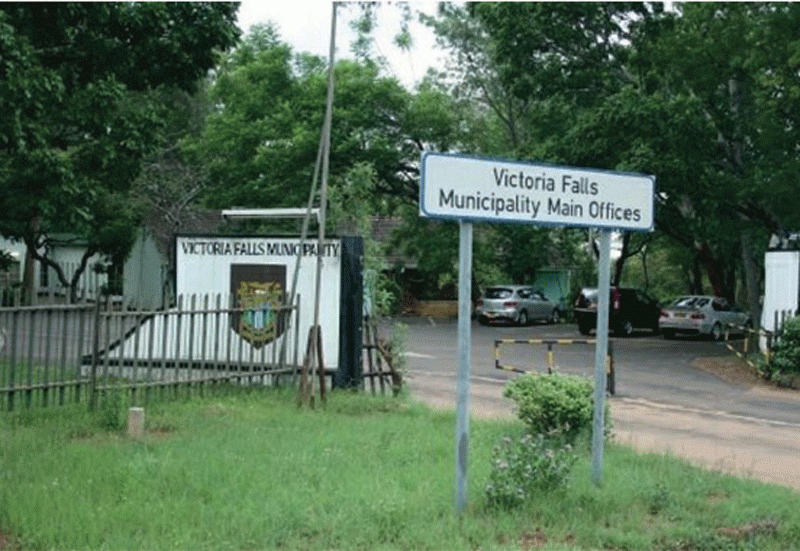
THE neatly constructed tarred road from the historic Boterekwa to Unki Mine abruptly comes to a halt, marking the end of modernity.
A rugged gravel road takes over going towards the north.
There seems to be no life at all as one gets deep into rural Shurugwi.
But, upon arriving at Sherekete Business Centre, under Chief Nhema, something unusual attracts the eye.
There is electricity at this once neglected area and the beneficiaries are happy about it.
“I have been running this shop for almost 25 years , without electricity, but today, it is a different story. We now have power and business has improved,” said Witness Mashanda (67) as he packed soft drinks into his newly-purchased white freezer.
“We really wanted this, villagers are now buying meat from butcheries here, cold drinks and our working hours have increased.”
Recently, Energy and Power Development minister July Moyo officially commissioned power availability in Shurugwi North after the Rural Electrification Fund (REF) installed grid power in Zvarota area, Shurugwi North constituency.
- Covid-19 positive deportees escape
- Covid-19 positive deportees escape
- News in depth: 'The untouchables': July Moyo gives tycoon, associates 'immunity' from prosecution
- Minister dragged to court over chieftainship
Keep Reading
The project saw electricity also being installed at Makonese Primary School, Zvarota Clinic, Chief Nhema’s homestead, Magumise Primary School and Takunda Secondary School.
The villagers in this area also benefited from the grid electricity installation.
“Our local clinic now boasts reliable power. They can now stock medication which require low temperatures unlike before,” Chief Nhema boasted.
“I am happy for the school childre, their ICT dreams have been realised. With schools around here already electrified, it means they can now pursue their ICT wishes.”
At Sherekete Business Centre, a seemingly village intellect, Mordecai Marozva, said the switching on and lighting up of Zvarota area is a blessing to the environment.
“With electricity now in the area, this means deforestation is reduced. We now have different sources of power, the forests are spared,” said Marozva as he exhibited his knowledge in environmental protection.
The Zvarota rural electrification project, that comprised the erection of a 10,5km 11kV line, gobbled a total of US$198 445.
Also installed under the project are 0,8km of MV line with 1x10 ova, 3x 25kVA and 1x50kVA sub stations.
The Shurugwi project started in September 2024 and was completed in January this year.
“This project is set to transform the lives of the benefiting community. The quality of education and health care will improve because of electricity,” Moyo said as he addressed villagers at Takunda Secondary School.
“Teachers will be able to teach ICT, science subjects, conducting experiments and marking books late in the evening in the comfort of their electrified houses.
“Nurses who endured the burden of treating patients particularly expecting mothers in poor lighting conditions are now working in an enabling environment.”
The minister said the provision of access to sustainable modern energy services to rural areas of Zimbabwe “will no doubt support many other government initiatives that are aimed at empowering our rural communities, alleviating poverty, building capacity, and creating employment in our rural communities, thereby leading to sustainable development and social equity in Zimbabwe”.
He said many other benefits will accrue, among them the reversal of rural-urban migration, mitigation of climate change, promotion of e-learning in rural schools and rural industrialisation.
“The government will continue to explore ways of creating an enabling environment for the development of our country, particularly the provision of power to our rural areas and will continue to give support to the Rural Electrification Fund, towards the implementation of the Rural Energy Master Plan, facilitating rapid and equitable provision of modern energy services in all our rural communities across the country,” Moyo said
As of June 30, REF has electrified 10 987 projects.
This figure includes 3 122 primary schools, 1 559 secondary schools, 1 047 rural health centres, 474 government extension offices, 305 chiefs’ homesteads, 1 322 business centres, 875 small-scale farms, among other related institutions.
REF board chairperson Willard Chiwewe said the availability of electricity in rural Shurugwi would promote rural industrialisation.
“As you are aware, electricity or energy in general is a key enabler of all business initiatives, agricultural production, mining, industry and commerce, REF has remained consistent with its mandate to deliver power to those formally disadvantaged and neglected communities to promote a new lease of life to rural communities,” Chiwewe said.
“The provision of electricity in rural Zimbabwe has rekindled the hope of many hardworking communities who could not engage in any meaningful business ventures owing to the non-availability of electricity.
“Many electrified rural service centres have become a hive of activity as rural entrepreneurs are operating such business ventures as welding, tailoring, carpentry and hair dressing projects among other initiatives.
“Smallholder farmers who benefited from electricity are farming all year round irrigating their fields and some have increased delivery of farm produce to the Grain Marketing Board.”
Today, Marozva is a happy man as the switching on of rural Zvarota will result in the preservation of local forests due to alternative energy sources.










